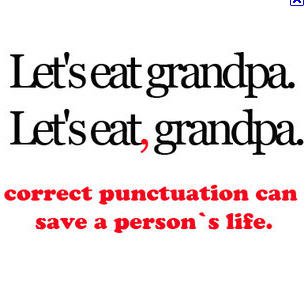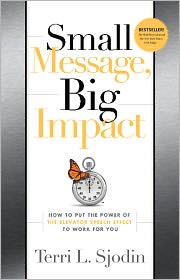
As we discussed last week, it’s okay to tell at times, but in fiction you want to show the important, emotion-laden scenes. That way the reader gets the vicarious experience along with the character. So how do you know when you’re telling rather than showing? Here are a few tips:
Beware the dreaded –ly adverbs.
“Get out of my novel, you –ly adverbs!” Alice said angrily.
Ah-ah-ah! Any time you use an –ly adverb (angrily, happily, stupidly, etc), you’re telling us what the emotion is rather than showing it. Instead, show the emotion, whatever it may be, through actions or punctuation. In the example above, the exclamation point tells us Alice is being vehement, but it’s not clear if she’s angry or frightened.
Alice stared at the page of her novel, her blood pressuring rising. Thirty-two! Thirty-two –ly adverbs on one page! What was wrong with her? “Auughh!” Her cry still echoing around her, she grabbed the page, crumpled it into a compact ball, and pitched it, as hard as she could, against the wall.
One excellent resource for showing, as well as for other elements of quality fiction, is Self-Editing for Fiction Writers, by Renni Browne and Dave King (Writers’ Digest Books). If you don’t have a copy of this book on your shelf, get it today! Self-Editing recommends cutting virtually every –ly adverb one you write. It’s surprisingly easy to do so. Just use your search-and-replace function, searching for ly with the different punctuation marks after it (ly. ly, ly? ly!) and ly with a space after it. You can get rid of most, if not all, of them in no time. Replace them with a beat or just drop them.
R.U.E.: Resist the Urge to Explain
Another thing to watch for is author intrusion, which happens when you give us emotion and with, in, of, etc. (e.g., she screamed in frustration). Too often we write great descriptions, then give the reader a recap, just in case they missed the point. Not only is that telling, it’s underestimating your reader. Far better, though, to let your characters’ words and actions stand on their own. Consider the following:
- Alice leaned forward eagerly. “I think he’s a spy!”
- When the kitten fell off the chair, Bob laughed in an amused way.
- Jean’s forehead creased in confusion.
- Dan threw the book at her with an angry toss.
Where is the explaining there? Right! Eagerly, in an amused way, in confusion, with an angry toss. All of those are telling, and all are unnecessary. When you come across an explanation, cut it. If the emotion is still shown and clear, the telling wasn’t needed. If it isn’t shown, then rewrite to show without explaining. So…
- Alice leaned forward. “I think he’s a spy!”
Leaning forward implies eagerness, so this works just by cutting the -ly adverb.
- When the kitten fell off the chair, Bob laughed.
Okay, yes, Bob has a warped sense of humor. But we can see that just fine without the editorial of in an amused way. What’s that? Laughter isn’t always amused? True enough. Sometimes it’s wry, or angry, or sarcastic. That brings up a point to consider with showing: word choices. How about if we used another word like chuckled or chortled or giggled or laughed ’til his sides hurt. One of the keys to showing well is choosing the right words to convey the exact emotion.
- Jean’s forehead creased.
Again, the action communicates the confusion, but if you want to be sure it’s clear that she’s confused, you could add a question from Jean to show her confusion.
- Dan threw the book at her.
Here, too, the action shows anger. One doesn’t generally throw things at people if they’re happy. (At least, I hope not!) If you want to spice it up a bit, you could show the impact when the book hits something, or use a word like heaved, or add a muttered oath…etc.
One last word on showing: Don’t fall into clichés. If your character is angry, don’t tell us he’s “mad as a hornet.” Find a way to make the old new again by putting your own spin on it. For example, I had the dubious honor of poking a hornets’ nest when I was a kid. Yeah, what can I say, I had more chutzpah than brains. So I could rewrite the cliché as “mad as a hive-poked hornet” or “mad as a mass of hornets whose hive was just poked.”
So give it a try! Write a few lines that show one or two of the following emotions. And feel free to post your examples. And have fun!
- Happiness
- Joy
- Anger
- Fear
- Danger
- Revenge
- Comfort
- Depression












